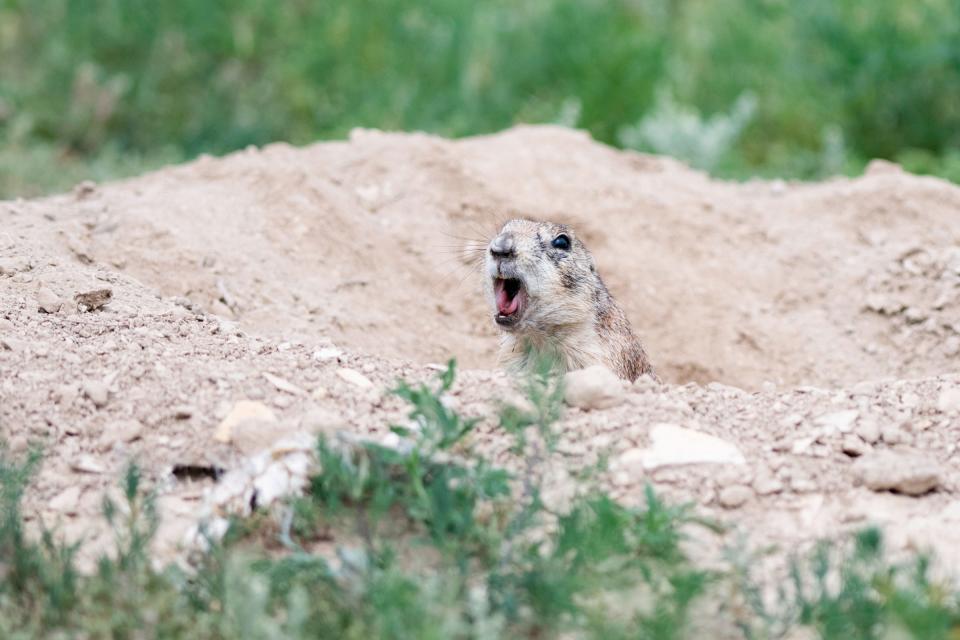How to stay safe from zoonotic diseases in Pueblo this summer
While Puebloans continue to enjoy the summer weather, the Pueblo Department of Public Health and Environment is seeking to remind residents to be wary of serious diseases spread by insects and wildlife.
Increased precipitation levels this summer have created ideal conditions for flea, mosquito and rodent populations to grow. These animals are able to transmit serious diseases to humans and pets, according to a PDPHE news release. Hantavirus, plague, tularemia and West Nile virus are among the illnesses of which the health department is telling Pueblo residents to be wary.
“Summertime is when more people are outdoors, enjoying barbecuing, fishing, camping, and gardening," said Alicia Solis, PDPHE program manager. "As you are outdoors this summer, please take steps to protect yourself and your pets against serious summertime diseases."
Here is what Puebloans should know to stay safe from diseases like hantavirus, plague, tularemia and West Nile.
Watch out for these animals that carry and spread the diseases
Plague and tularemia are bacterial infections commonly spread to humans and animals through bites from ticks. They also can be spread through bites from deer flies and fleas and direct skin contact with infected animals or carcasses.
Pueblo County's first positive human case of tularemia was reported in 2022. Also known as "rabbit fever," tularemia is "widespread" among Pueblo West rabbits, Solis said. Plague infections are often found in prairie dog colonies.
West Nile is commonly spread by mosquitos in summer months. Mosquitos become carriers of the virus from infected birds. Water-holding containers like tires may serve as breeding sites for mosquitoes — which are especially active at dusk and dawn.
Hantavirus may be contracted through the inhaling of rodent saliva, urine and droppings. Hantavirus infections are most common May through July and require hospitalization.
"Initial (hantavirus) symptoms include fever, chills, severe muscle pain, headache, stomach pain, vomiting, and diarrhea. These symptoms are followed by progressively worsening cough and difficulty breathing due to fluid buildup in the lungs," according to PDPHE. "People with hantavirus infection need to be hospitalized, often in an intensive care unit. Delayed care can result in death."
How you can prevent these diseases from spreading

In preventing the spread of plague and tularemia, local health officials advise Puebloans to avoid wild animals, garden with closed toed shoes and gloves, wear insect repellent and avoid drinking unpurified water.
"Never touch sick or dead animals with your bare hands," PDPHE advised in a news release. "If an animal must be moved, use a long-handled shovel to place it in a garbage bag. Place the bag in an outdoor garbage can and then wash your hands ... Do not mow over dead animals."
Pet owners also should make sure their animals avoid drinking unpurified water, are kept from "roaming free," have protection from ticks and fleas, and do not eat dead animals.
"If your pet stops eating or drinking or develops other symptoms, take the pet to the veterinarian promptly,” Solis said.
To prevent contracting West Nile, Solis recommends individuals drain standing water from water-holding containers, avoid outdoor activities at dusk and dawn, use insect repellent and cover up their bodies if outside during the times of day mosquitos are most active.
Hantavirus infections may be prevented by taking steps to prevent rodent infestation. This includes clearing plants away from outside walls, tightly sealing garbage cans and filling structural holes in buildings. In areas that are known to have a rat infestation or are infrequently used, PDPHE advises individuals wear masks and gloves and never sweep rat droppings, urine or nests.
"Spray areas where urine, feces, and dust have accumulated using one of the following preferred disinfectants: General-purpose household disinfectant cleaning product (confirm the word “disinfectant” is included on the label), or a bleach solution made with 1.5 cups of household bleach in 1 gallon of water (or 1 part bleach to 9 parts water). Make bleach solution fresh before use," according to PDPHE.
After using a paper towel to clean droppings or urine, individuals should use the disinfectant to mop the area and thoroughly wash hands after cleaning.
How common are these diseases in Pueblo and throughout Colorado?
West Nile is among the most frequently reported zoonotic diseases in Colorado. There were 206 human cases of West Nile reported in 2022, according to the Colorado Department of Public Health and Environment.
Human tularemia, hantavirus and plague are much less common. There were three human tularemia cases reported in Colorado last year. Two of those cases were reported in Pueblo County. There were no human plague, nor hantavirus cases reported in 2022. Between 2017 and 2021, 14 hantavirus cases and three plague cases were reported in Colorado.
PDPHE has reported one case of human tularemia for Pueblo County in 2023, Solis said. No human cases of hantavirus, plague or West Nile have been reported among Pueblo County residents in 2023.
More information about diseases spread from animals to humans can be found on the PDPHE website and the CDPHE website.
Pueblo Chieftain reporter James Bartolo can be reached at JBartolo@gannett.com. Support local news, subscribe to The Pueblo Chieftain atsubscribe.chieftain.com.
This article originally appeared on The Pueblo Chieftain: Pueblo heath department warns residents of zoonotic illnesses

